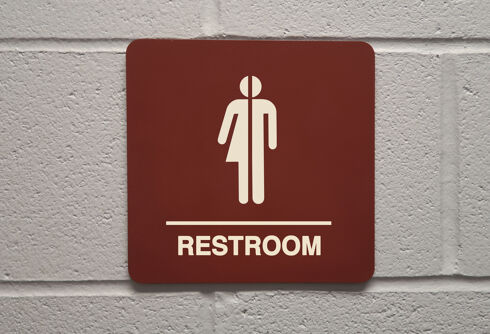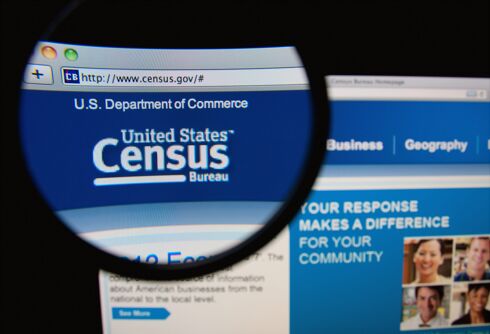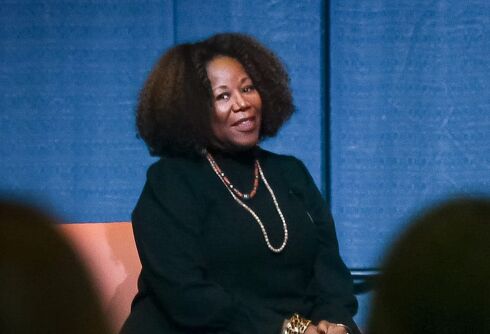Updated: 6:00 p.m. CDT
MADISON, Wis. — Conservative attorneys tried to persuade the Wisconsin Supreme Court to wipe out the state’s domestic partner registry Wednesday, telling the justices it violates the state’s ban on gay marriage.
Same-sex couples who join the registry enjoy a host of legal rights, including the right to visit each other in hospitals and make end-of-life decisions for each other.
 Members of the conservative group Wisconsin Family Action filed a lawsuit three years ago arguing the registry violates a 2006 state constitutional amendment that bans gay marriage or anything substantially similar.
Members of the conservative group Wisconsin Family Action filed a lawsuit three years ago arguing the registry violates a 2006 state constitutional amendment that bans gay marriage or anything substantially similar.
Never Miss a Beat
Subscribe to our newsletter to stay ahead of the latest LGBTQ+ political news and insights.
A Madison judge and a state appellate court have both upheld the registry. The state Supreme Court, which is controlled by conservative-leaning justices, agreed to hear the case earlier this year.
Austin Nimocks, an attorney for the WFA members, told the justices during oral arguments that the registry mirrors marriage because both include sex-specifi c requirements, minimum age requirements and prohibits participants from being close relatives.
“This case is about (the registry) mimicking a blueprint of marriage,” Nimocks said.
Fair Wisconsin, the state’s largest gay rights group, is defending the registry. Attorney Christopher Clark countered marriage is a civil contract that comes with obligations of mutual support. The registry doesn’t include any such obligations, he said.
What’s more, he said, married couples can’t leave their contract without a court’s permission. Registrants, however, can unilaterally remove themselves from the list. The registry also provides fewer legal benefits than marriage and isn’t recognized in other states like marriages, he added.
“It is clear that a Wisconsin domestic partner registry is not marriage,” he said.
The justices questioned each attorney about whether they could erase the registry’s qualifying requirements to ensure its constitutionality but leave other parts intact.
Nimocks acknowledged that was possible, but stressed he wants the court to erase the entire registry. Justice David Prosser, a member of the conservative majority, told Nimocks he was “rolling the dice” with that stance. If he loses the case, “the Legislature can add benefits, bing bing bing,” Prosser said.
It’s unclear when the justices might rule; they operate on their own time.
Two hundred and thirty-two same-sex couples were on the registry at the end of 2012, according to the latest data from the state Department of Health Services, 70 percent of them women.
Kathy Flores and Ann Kendzierski, a same-sex couple from Appleton, told reporters outside court that their inclusion on the registry grants them crucial rights, such as ensuring they can see each other in the hospital. They said officials at an Appleton hospital once refused to let Kendzierski see Flores when she was diagnosed with cancer.
“This is … how we take c are of each other,” Flores said.
But WFA President Julaine Appling said the case is about preserving the institution of marriage.
“Because this (the registry) looks so marriage-like, over time it sends a message that marriage isn’t unique, that you don’t need a mom and dad to raise children,” she said. “The people of Wisconsin are fundamentally people of strong traditional values.”
This material may not be published, broadcast, rewritten, or redistributed.













